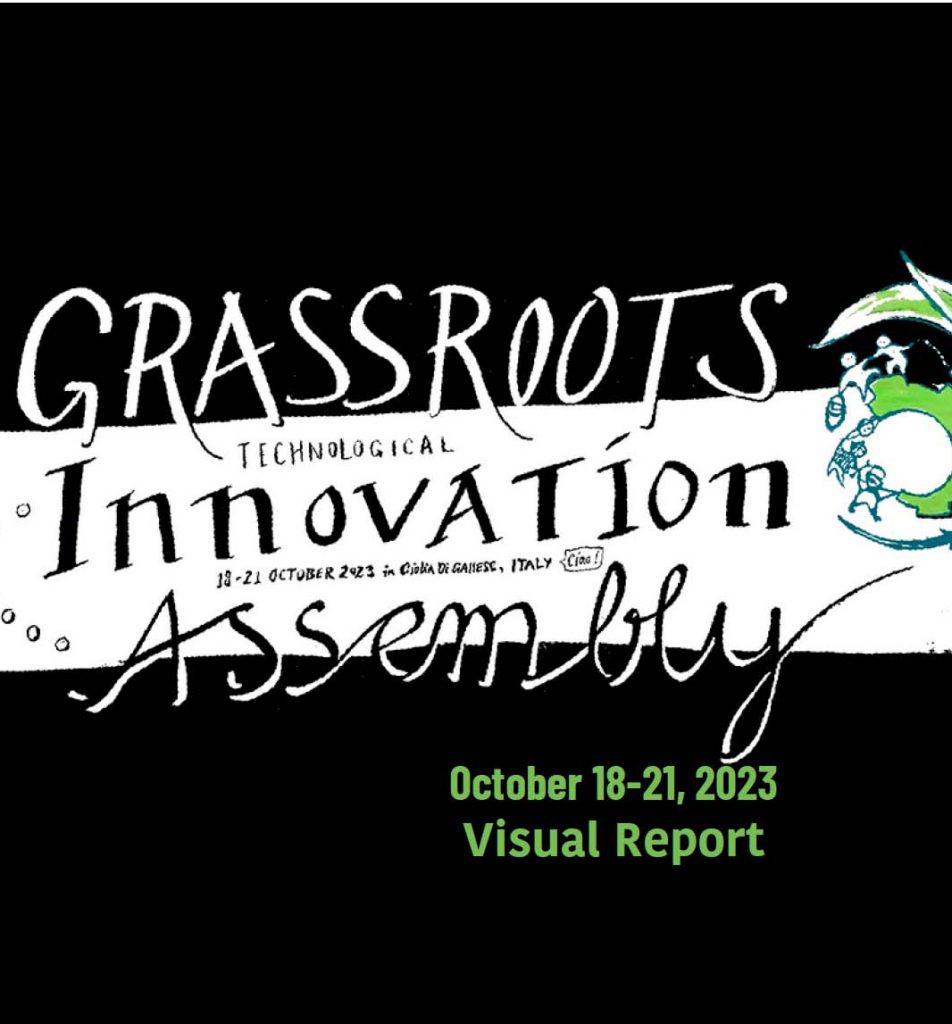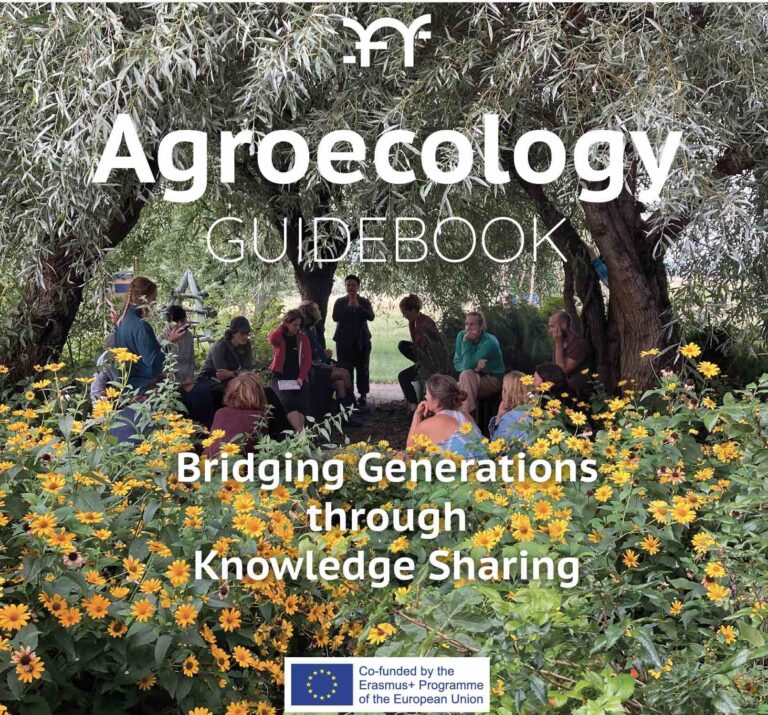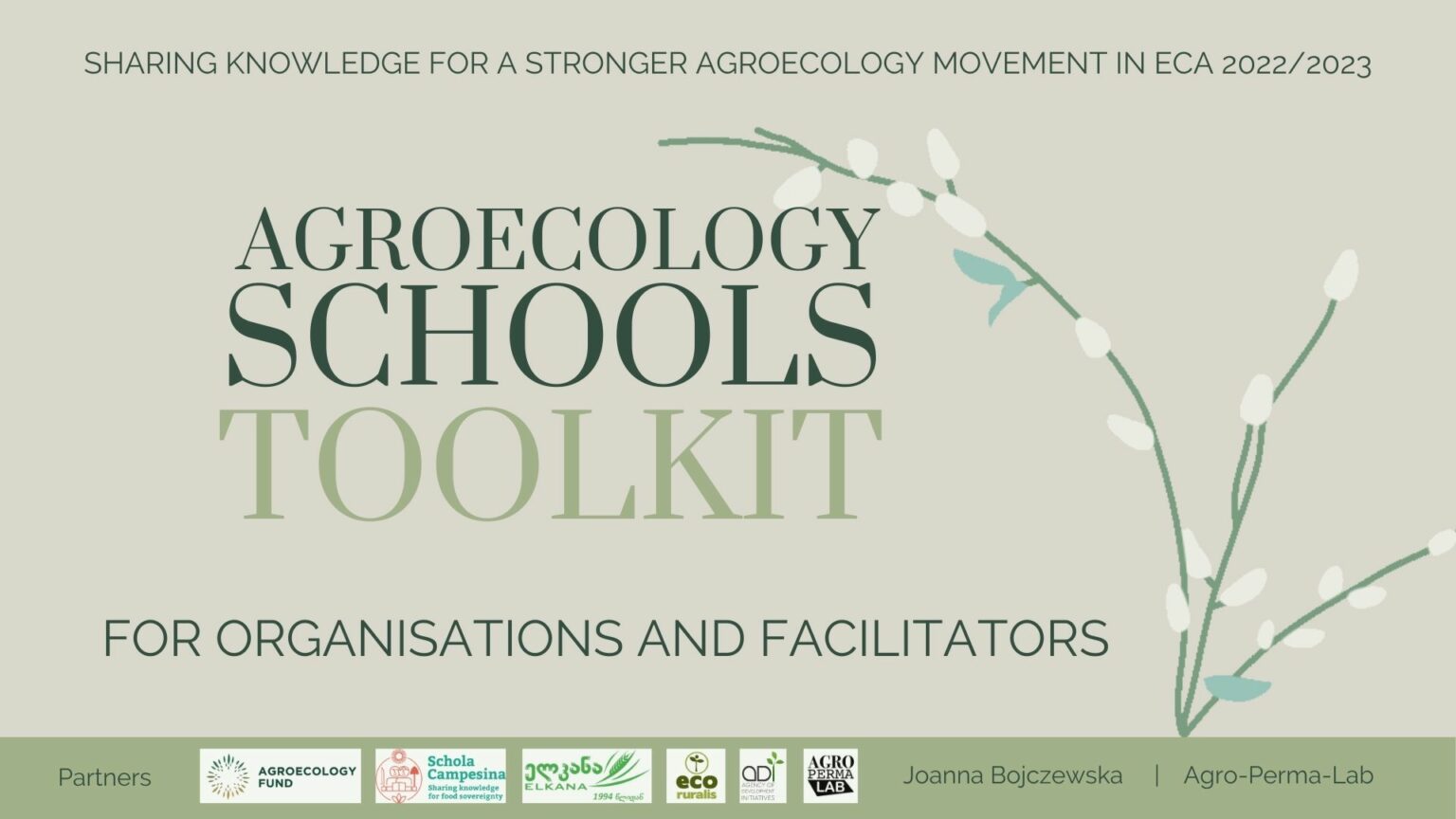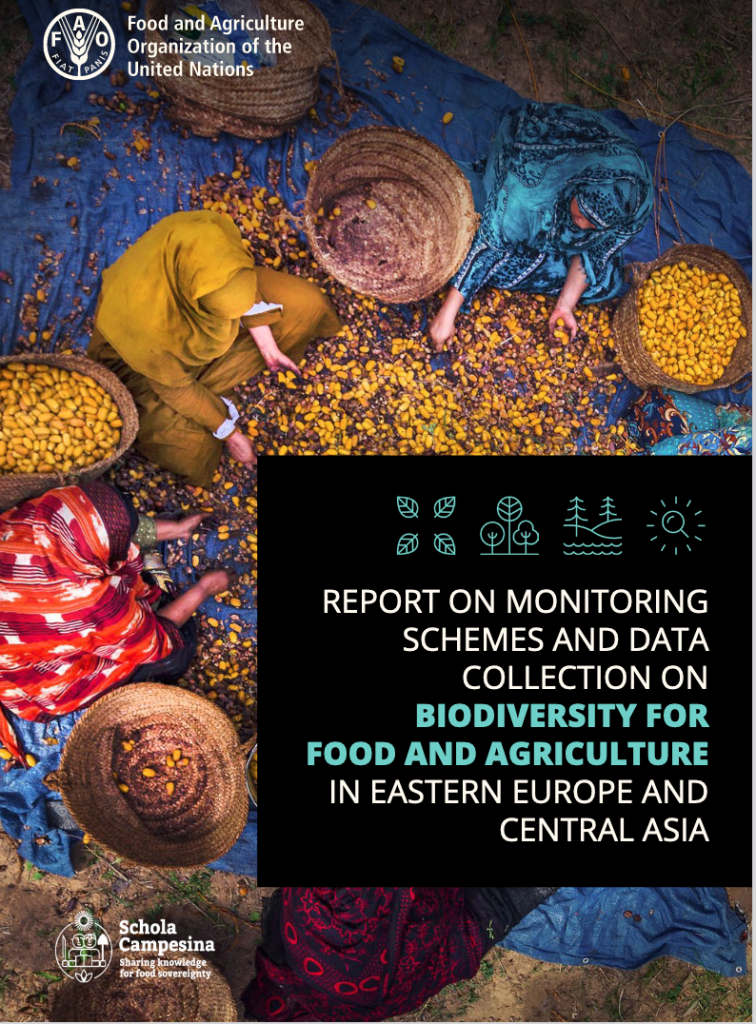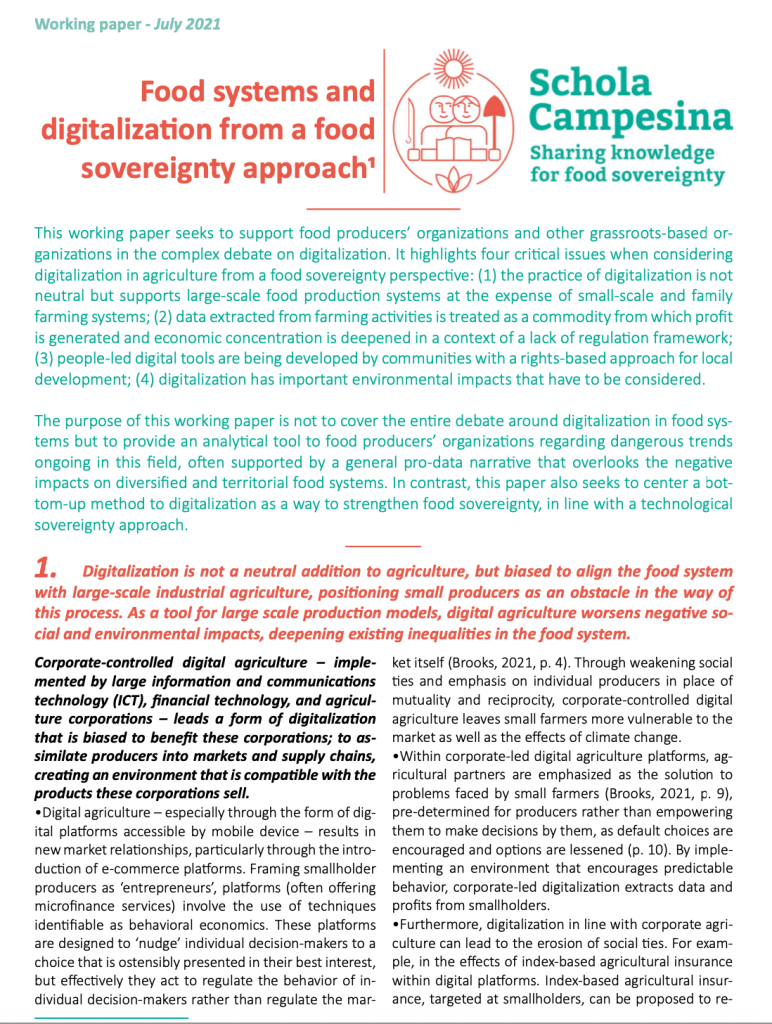Schola Campesina is an international Agroecology school, based in an italian biodistrict, seeking to strengthen food producers’ organizations worldwide in their struggle for Food sovereignty and Agroecology. Through knowledge sharing processes (trainings, videos, webinars), we seek to facilitate the understanding of – and actions within- the global governance of food and agriculture (Rome process). Based on Nyéléni International Forum for Agroecology (2015) and on the principles of Dialogo de saberes and Popular Education; Schola Campesina seeks to develop the dialogue among peasant, academical and activist knowledge.
Recent publications
The Grassroot Innovation for Agroecology Assembly 2023 Visual Report.
This report documents the first international gathering of the Grassroots Innovations for Agroecology Assembly held from Oct 18-21, 2023 in Gallese, Italy. As food producers confront climate crises, corporate capture, and the new extractive technologies of AG 4.0, smallholders are organizing their own innovation networks for agroecological methods. The work of these networks demonstrates that peasant autonomy is possible through grassroots innovation, knowledge-sharing, research, and collaboration.
The idea for the international grassroots innovations assembly was seeded by a group of established innovation networks like Farm Hack, L’Atelier Paysan, and Schola Campesina. Download the report
Agroecology Guidebook
÷The BAG – Bridging Generations in Agroecology project, funded by the European Union and spanning from 2020 to 2023, addresses the pressing challenges faced by rural communities in Europe, particularly the obstacles related to knowledge sharing and co-creation. This publication is the result of collaborative efforts of 6 partners actively engaged in the field of agroecology, as part of their involvement in the project: ZIARNO (Poland), HNEE (Germany), Toekomstboeren (the Netherlands), InterAfogs (France), Swiss School of Byodinamics, and Schola Campesina.
The Agroecology Schools Toolkit
The Agroecology Schools Toolkit is part of a continued pedagogical work allowing agroecology schools facilitators to meet, exchange and be trained on content and methodology. It also aims at supporting young organisations in starting their own agroecology schools. Through horizontal knowledge-sharing organisations expand leadership, expertise and tools across community research, education and political work to promote agroecology at the international, national and regional levels.
Download the Toolkit
Latest News
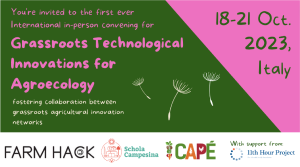
Grassroots Innovations for Agroecology Assembly
Schola Campesina is facilitating the assembly of Grassroots Innovations in the field of agroecology. Within this context, two online events were organized: July 24th, 2023

Webinar. Why is data an issue for farmers and food systems?
The CSIPM invites small-scale family farmers, peasants, pastoralists, fisherfolk, Indigenous Peoples, and other allies from Africa, to a workshop to exchange information and views on

Data for Food Security and Nutrition: CSIPM Vision Statement
The CSIPM Data working group has collaboratively composed this vision statement, involving individuals and organizations from diverse regions and backgrounds. These stakeholders engage with digitalization
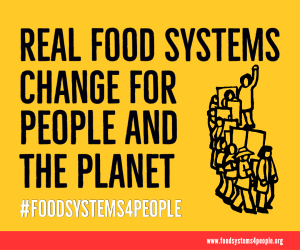
Rise up against corporate food systems!
The Autonomous People’s Response is once again denouncing the corporate capture of decision-making in food systems and the UN Food Systems Summit stocktaking event (UNFSS+2) starting on
BILIM - Agroecology alliance
in Europe and Central Asia region
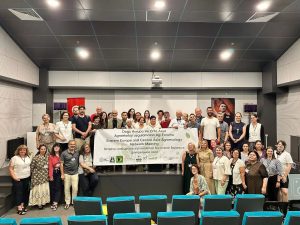
Bilim forum 2023 – the first Forum for Agroecology in Eastern Europe and Central Asia
From July 10th until July 14th 2023, BILIM – the first Forum for Agroecology in Eastern Europe and Central Asia – was held in Bursa,

Bilim platform to further exchange/Онлайн платформа Bilim
We are very proud to have a new online platform, co-developed with the Community of Practice on Agroecology in the ECA region BILIM. Further exchanges
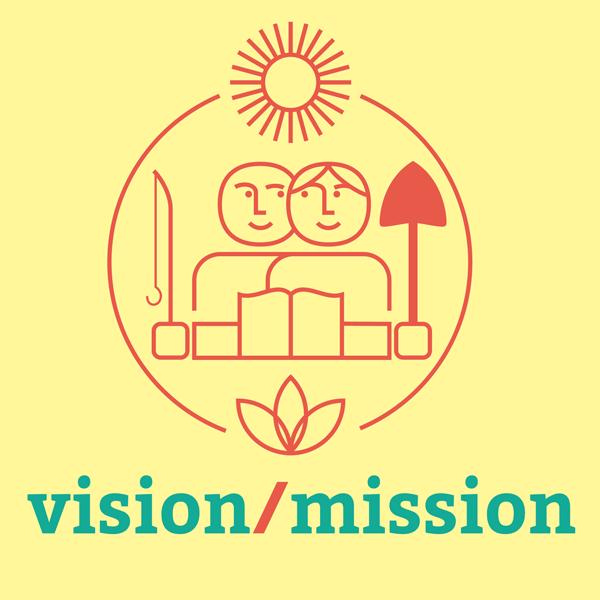
There are 1.5 billion peasant farmers and food producers in the world (the largest sector in the world) and they represent a pillar of economic democracy. Indeed, small-scale food producers make food and agriculture the unique sector of the economy which is not dominated by oligopolies (Internet is in the hands of 10 companies, the world energy market is possibly in the hands of 20, and most economic sectors are experiencing unprecedented concentration). Despite the large number of concentration processes currently ongoing, food and agriculture represents the only sector where there are still 1.5 billion food producers. Hence, a rights-based social and economic model built on a strong sector of food producers, peasant farmers, small-scale fishers and pastoralists, and not on the arrogant force of a few.

